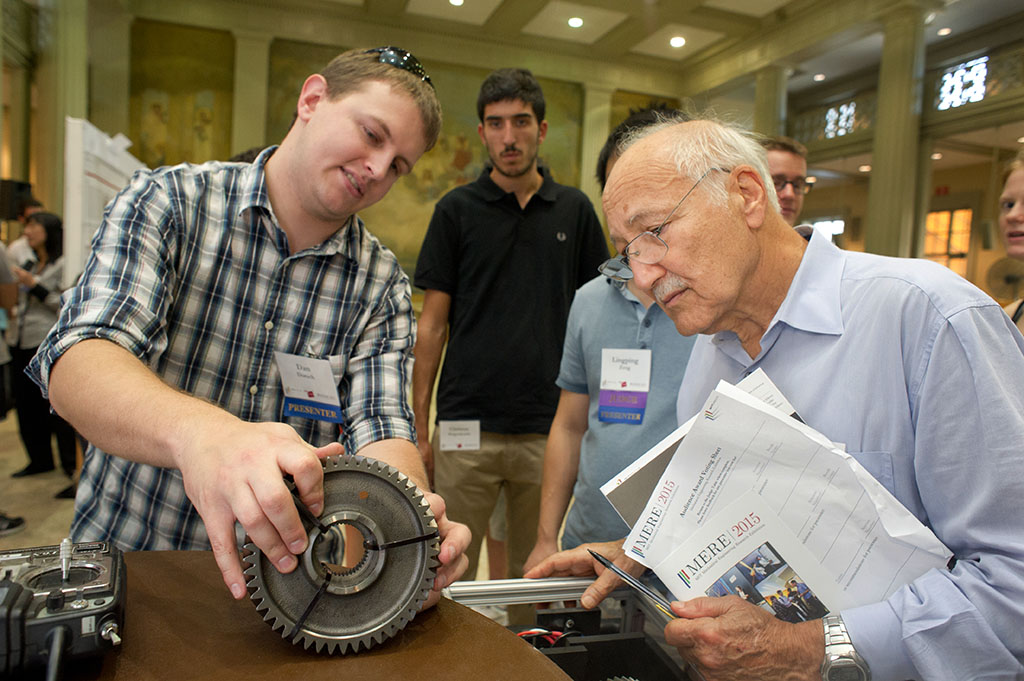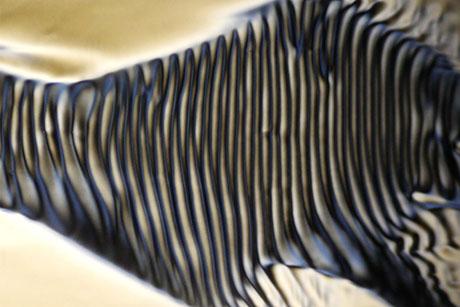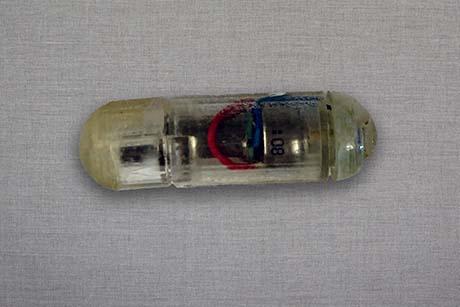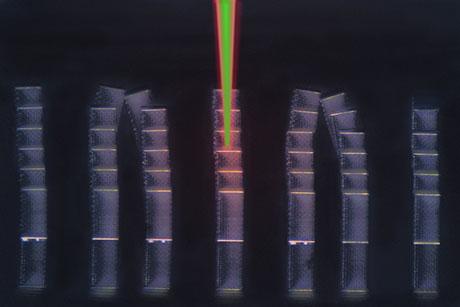Communicating Engineering Research at MERE Showcase
Second annual MechE Research Exhibition brings together community and recognizes graduate students.
On a hot fall day this September, Department of Mechanical Engineering (MechE) graduate students were carefully hanging up posters along the perimeter of Walker Memorial’s main room. More than 125 alumni and their guests were finishing up lunch and conversation, starting to direct their attention to the students setting up monitors and machines on tables in front of them. The first presentation session for the second annual Mechanical Engineering Research Exhibition (MERE) was about to begin.
Unlike most research exhibitions, MERE isn’t primarily about the research itself; instead, alumni, students, and staff who volunteer as judges are tasked with deciding how well the student presenters communicate understanding of their research, its impact on the world, and excitement about what they’re doing.
“I was very impressed by the breadth of research being done by the MIT Department of Mechanical Engineering,” says one alum who attended the event. “The students had excellent presentations and were humble about their contributions.”
The event, which was held for the first time last fall, is organized by the Graduate Association for Mechanical Engineers (GAME) and sponsored by MechE. Its purpose is to give graduate students a chance to practice communicating their research to various audiences and receive feedback on their presentation. Just as importantly, it also offers the entire MechE community a chance to learn about current research in the department and network with alumni, faculty, students, and staff.
“MERE is an example of collaboration and interdisciplinary sharing at its finest,” says Jerry Wang, a graduate student working in Professor Nicolas Hadjiconstantinou’s Nanoscale Transport and Multiscale Simulation Group. “A place where robots meet redox reactions, where computationalists break bread with cadres of CADers, where people of every lengthscale preference can find common ground.
“It brings the department together in a laid-back yet highly engaging environment, showcasing not only the cleverness but also the camaraderie and collegiality that make MIT MechE such a special place,” he says.
This year, more than 80 MechE graduate students presented their research, and more than 450 members of the MechE community attended the event. MechE alum Eric Wilhelm '99, MS '01, PhD '04, founder of the popular company Instructables, an online community where makers can share their projects and connect with each other, gave the keynote address.
Wang won the Da Vinci Award for Outstanding Presentation for receiving the overall highest score from all judges for presentation of his work on nanofluidics.
Rupak Chakraborty won the Excellence in Understanding Award; Federico Parietti won the Excellence in Impact Award; Kevin Kung won the Excellence in Excitement Award; Murthy Arelekatti won the Excellent Overall Presentation Award; Albert Wang won Best Live Demo Award; Deepak Subramani won Best Theoretical or Computational Award; and John Romanishin won Best Newcomer Award.
Jonathan Abbot, Guillermo Diaz Lankenau, Doojoon Jang, Bavand Keshavarz, Natasha Wright, and You Wu won Honorable Mention Awards. Will Bosworth, Katherine Ong, Liz Strong, Lee Weinstein, Xiaoyu Wu, Yi Xue, and Shawn Zhang won Audience Awards. More than $10,000 in prizes were awarded to the winners.



